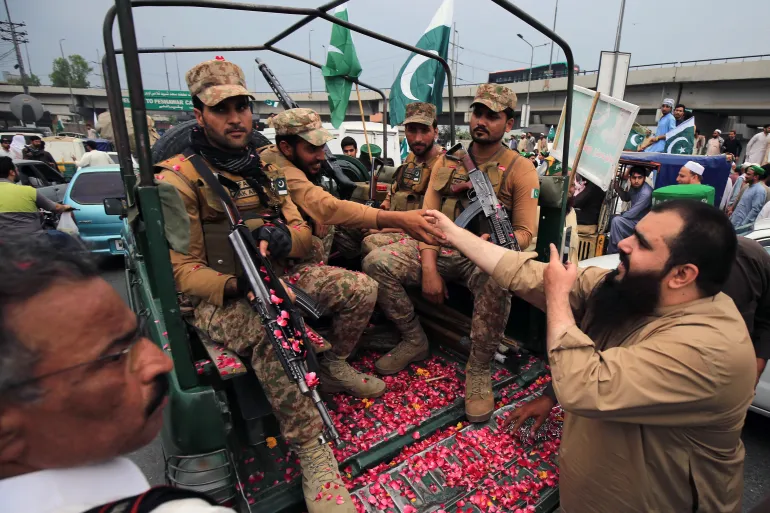Pakistan’s political landscape is once again marred by concerns over the fairness of its upcoming general election on February 8. The military’s deep influence on the country’s politics has cast a shadow over the democratic process, raising questions about the civilian-military balance in Pakistan. With a history of military rulers and frequent interventions, Pakistan’s democracy has struggled to flourish, leaving many to wonder if the latest vote will be nothing more than a farce.
The military’s influence in Pakistan dates back to its inception as a new nation. In the face of economic difficulties, the military emerged as an institution with unmatched leverage in society, thanks to its immunity from the challenges faced by civilian governments. Multiple wars with India further solidified the army’s role as a bulwark against perceived threats, leading to a political configuration known as “establishmentarian democracy.”
Civilian governments in Pakistan have been plagued by corruption and inefficiency, partly due to frequent military interference. Politicians often find themselves compelled to comply with the military’s wishes in order to access power, leading to dynastic and undemocratic political parties. The inability of governments to complete their terms and the irregularity of elections further erode confidence in the democratic process.
The military’s influence reached its peak during the rule of General Pervez Musharraf, who overthrew a civilian government in 1999. Despite subsequent efforts by political parties to strengthen democracy, such as the signing of the Charter of Democracy in 2006, the perception remains that these agreements were aimed at protecting each other from accountability rather than genuinely promoting civilian supremacy.
Imran Khan’s rise to power in 2018, with support from the military, further strained the relationship between the government and the army. However, tensions between Khan and the military eventually led to his ouster in 2022 through a parliamentary vote of no confidence. Since then, Khan and his party have faced persecution, including imprisonment and charges of corruption.
With elections just around the corner, Pakistani politicians face the challenge of breaking free from the hybrid regime system that perpetuates military dominance. They must commit to a system of elections and adhere to a coherent set of rules, prioritizing the long-term health of democracy over short-term gains. However, political reconciliation seems unlikely at this point, with politicians hesitant to acknowledge the need for collaboration.
Despite the cloud of credibility hanging over the upcoming vote, analysts argue that elections are essential for the country’s progress. An elected government must rise to the occasion and tackle the monumental challenges facing Pakistan. However, some critics view the upcoming election as nothing more than a charade orchestrated by the military to exclude Imran Khan and his party.
The future of Pakistan’s democracy hangs in the balance as the country grapples with the influence of its powerful military. The upcoming election will be a crucial test for Pakistan, as it seeks to rectify the civilian-military imbalance and pave the way for a more robust and inclusive democratic system.




